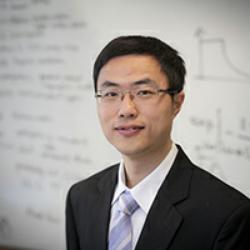December 11, 2025
Markov-renewal LIDAR Simulator Predicts Count Statistics with Analytical Fidelity and Speed
Researchers Weijian Zhang, Prateek Chennuri, and Hashan K. Weerasooriya, along with Bole Ma and Stanley H. Chan from Purdue University, overcome limitations with Single-photon LiDAR simulators with a new simulator that delivers both fidelity and computational efficiency.









